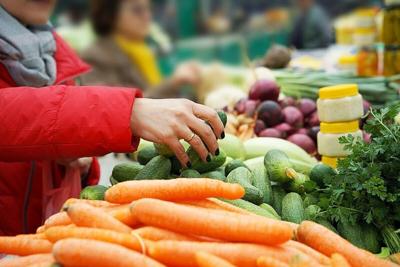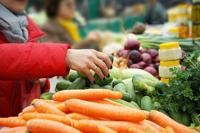SUNDAY, June 15, 2025 (HealthDay News) — Struggling to get a good night’s sleep? A new study suggests that a natural solution might be found right in your fridge: fruits and veggies.
Researchers from the University of Chicago and Columbia University found that eating more fruits, vegetables and whole grains during the day may lead to better sleep that same night.
“Dietary modifications could be a new, natural and cost-effective approach to achieve better sleep,” study co-author Dr. Esra Tasali, director of the UChicago Sleep Center, said in a news release.
The study — published June 11 in the journal Sleep Health — is one of the first to show that what you eat during the day may affect your sleep that very night, researchers said.
The researchers asked healthy young adults to log what they ate each day using a smartphone app. Participants also wore wrist monitors that tracked how well they slept.
They specifically measured “sleep fragmentation,” or how often someone wakes up or shifts into lighter sleep. Less fragmentation means better, deeper sleep, researchers explained.
While research had already been conducted on how poor sleep can lead to unhealthy eating, this study flipped the script, looking at how food choices can impact sleep.
The results showed that people who ate more fruits, vegetables and healthy carbohydrates — such as whole grains — had better quality sleep that night.
In fact, researchers estimate that eating the recommended five cups of fruits and vegetables a day could improve sleep quality by 16% compared to eating none.
That's a “highly significant difference,” Tasali said. “It’s remarkable that such a meaningful change could be observed within less than 24 hours.”
Further research is needed to confirm how this connection works and whether it remains true in different populations.
Still, experts say it’s a powerful reminder that diet affects sleep — and that small daily changes can help.
“People are always asking me if there are things they can eat that will help them sleep better,” said study co-leader Dr. Marie-Pierre St-Onge, director of the Center of Excellence for Sleep & Circadian Research at Columbia.
“Small changes can impact sleep," she said. "That is empowering — better rest is within your control.”
More information
The Sleep Foundation has more on nutrition and sleep.
SOURCE: University of Chicago Medical Center, news release, June 11, 2025
What This Means For You
Adding more fruits and vegetables to your diet could be an easy, natural way to get better sleep.















(0) comments
Welcome to the discussion.
Log In
Keep it Clean. Please avoid obscene, vulgar, lewd, racist or sexually-oriented language.
PLEASE TURN OFF YOUR CAPS LOCK.
Don't Threaten. Threats of harming another person will not be tolerated.
Be Truthful. Don't knowingly lie about anyone or anything.
Be Nice. No racism, sexism or any sort of -ism that is degrading to another person.
Be Proactive. Use the 'Report' link on each comment to let us know of abusive posts.
Share with Us. We'd love to hear eyewitness accounts, the history behind an article.